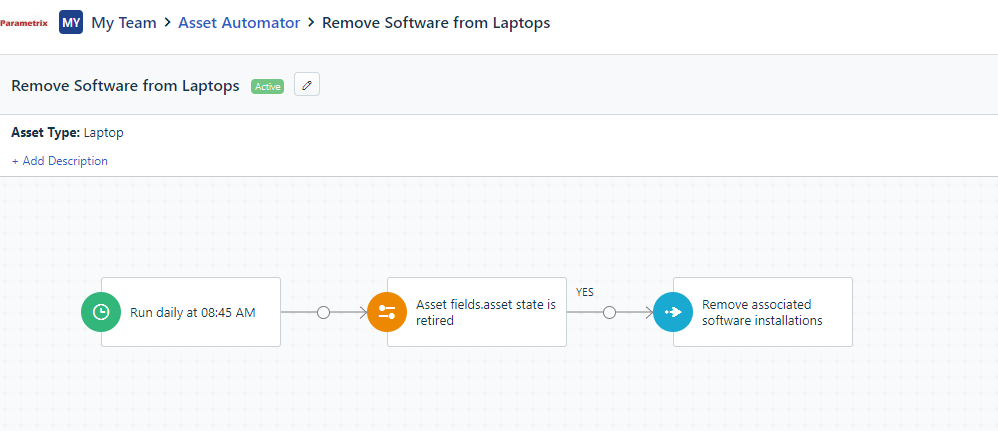I’ve noticed an issue with the new (otherwise AMAZING) scheduled automators - they don’t trigger child asset-types as they should.
For example, if you’d like to run an event-based workflow for all Laptops + Desktops + Servers, you would just use the Computer parent asset type. This works for event-based workflows. However if you use schedule-based workflows, the workflow must use the Laptop asset type specifically.
For my testing, I used 1 Laptop asset and 6 automators:
- Event-based | Asset | Hardware > Triggered successfully
- Event-based | Asset | Computer > Triggered successfully
- Event-based | Asset | Laptop > Triggered successfully
- Schedule-based | Asset | Hardware > Did not trigger
- Schedule-based | Asset | Computer > Did not trigger
- Schedule-based | Asset | Laptop > Triggered successfully
Therefore to make a schedule-based workflow system for the Computer asset type, I would need to make 3 rather than 1. That would be even worse for more generic higher-level asset types.
Has anyone else had a similar experience?
Cody P








